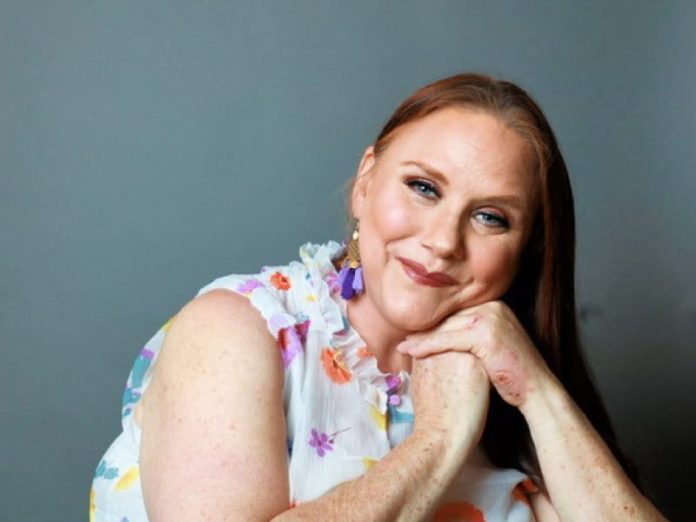
After enduring chemotherapy and radiation therapy during three bouts of cancer over 14 years, Stayc Simpson sought to take control of her body. She began training to run a half-marathon.
Her body didn’t handle it well. She started coughing and struggling to breathe at night – problems that didn’t seem connected to her training.
She went to the emergency room twice. Doctors blamed her symptoms on pneumonia. She was put on steroids and antibiotics.
The drugs didn’t work, so she took a third trip to the ER.
“Has anyone checked you for heart failure?” the physician asked Simpson.
“No, why would I have heart failure?” replied Simpson, who was 44 at the time.
She’d been told about many side effects from the harsh cancer treatments, but she didn’t realize they could include heart problems. She later learned that a particular chemotherapy drug she’d taken can cause heart failure.
An echocardiogram confirmed the diagnosis.
Heart failure means that a person’s heart isn’t adequately pumping blood to the rest of the body. It’s measured by something called ejection fraction. Normal is at least about 50%. Simpson’s was around 30%.
Medication helped her recover. In fact, a month later, Simpson’s doctor cleared her to resume her half-marathon training. (She’s since finished many 5Ks.)
The next year, Simpson was riding her bike while training for a triathlon when she was hit by a truck. She fractured her spine, tore a rotator cuff, and tore the ligaments and cartilage in her right knee.
As she recovered, her ejection fraction dropped to 10%. Doctors implanted a defibrillator and put Simpson on a waiting list for a heart transplant.
She was in the hospital on Valentine’s Day in 2012 when doctors warned her then-boyfriend, Michael Simpson, that she might not make it much longer.
He dropped down to one knee and proposed to her. The couple married on another significant date: Feb. 29, a leap year day.
After getting the defibrillator, Simpson worked to get into a University of Miami study about heart failure and stem cells.
In December 2014, doctors implanted stem cells into Simpson’s heart. During the procedure, they discovered a blockage. She needed a double bypass operation.
Simpson had the surgery five months later. The various interventions helped, as her heart function reached 47%.
In March, after many years of good health, Simpson was exercising when she started to feel lightheaded, with a rapid pulse. This led to the discovery of another blocked artery. Doctors were able to open it by inserting a stent.
Simpson is now 57 and living in Miami. She owns a gymnastics studio and teaches parent-child Zumba classes about five hours a week. She’s grateful to be alive and is braced for whatever other challenges life throws at her.
“I really believe that positivity can affect the outcome of anything that you’re faced with,” she said. “One of the things I’ve heard over and over and over again is that I never give up.”
Dr. Joshua Hare, Simpson’s heart failure and transplant specialist, said he’s impressed by her resiliency.
“I think it’s a testament to her will to tackle her medical problems that she’s been through so many things and done so much,” Hare said.
“Not only has she had conventional therapies, but she has participated in research studies, improved her own health, and advanced the state of medical treatment.”
Written by Kellie B. Gormly.
If you care about cancer, please see recent studies about new way to increase the longevity of cancer survivors, and results showing new way to supercharge cancer-fighting T cells.
For more information about health, please see recent studies about how drinking milk affects risks of heart disease and cancer and results showing that vitamin D supplements could strongly reduce cancer death.
Follow us on Twitter for more articles about this topic.



